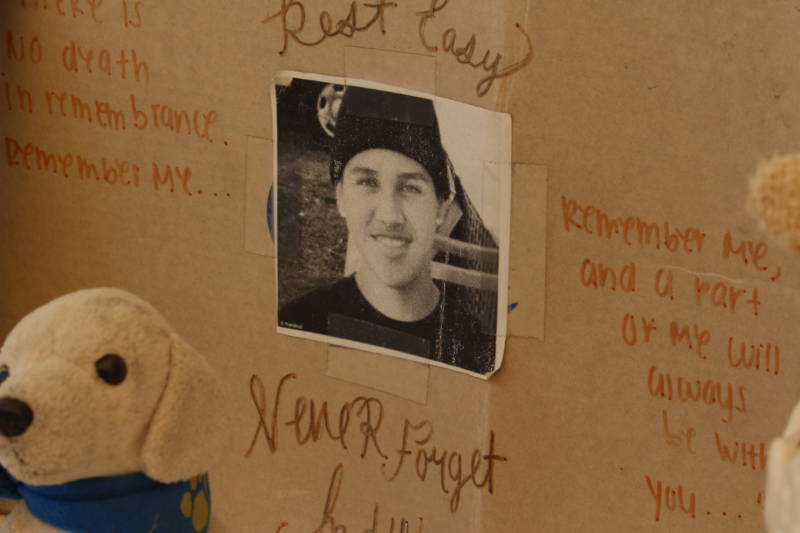The killing sparked outrage from the community, as did Gelhaus' promotion to sergeant in 2016.
It also sparked local and federal investigations into Gelhaus' actions. He was cleared of criminal wrongdoing by the Sonoma County District Attorney's Office in 2014 and the U.S. Department of Justice a year later.
Lopez's family filed a federal civil rights lawsuit against Gelhaus and Sonoma County in November 2013. The county had tried to get the suit thrown out, but a federal appeals court ruled in September 2017 that it could proceed to a trial.
Giordano said the case has changed the way his department interacts with the community.
"We needed to be out in the community right away in that event and talking to people and educating people and working with people," he said. "We've really moved in the last five years to truly engaging with the community. We're not just talking to the community; we're listening to the community."
Giordano repeatedly pointed to the dangers of fake firearms like the one Lopez was carrying when he was killed.
"The reality is our deputy was faced with a weapon that looked like a real weapon, and we can't change that fact," he said. "We reduced smoking by education. I hope at one point we reduce fake guns by education."
Arnoldo Casillas is an attorney representing Lopez's parents, Sujey Cruz and Rodrigo Lopez. Casillas said the settlement puts an end only to the litigation.
"The pain and the suffering that both Rodrigo and Sujey feel and will always feel isn't going to change and hasn't change," Casillas said. "The settlement itself puts an end to the litigation and it doesn't put an end to the suffering."
Casillas said Lopez's parents also take comfort in the fact that their son's case has become a precedent in incidents where police officers claim immunity after a fatal shooting. He pointed to the ruling by the 9th U.S. Circuit Court of Appeals, which the U.S. Supreme Court chose not to review on appeal from the county.
"It lays out the law, it lays out the circumstances where a police officer is entitled to immunity and, as in Andy's case, where a police officer is not entitled to immunity," he said.
Robert Weisberg, a criminal law expert at Stanford Law School, said the case could be a precedent for future cases in the 9th Circuit "because it could suggest less deference to police," but those cases will still be decided on the specific facts of the case, so it's hard to predict how much impact the Lopez case will have.
"The key to this decision was its effect on this case," Weisberg said, and that it portends a "mildly encouraging but uncertain future for new plaintiffs."
He also said that while the Supreme Court chose not to review this case, it could review a future case that is similarly favorable to plaintiffs and potentially rule against it, creating a true national precedent.

